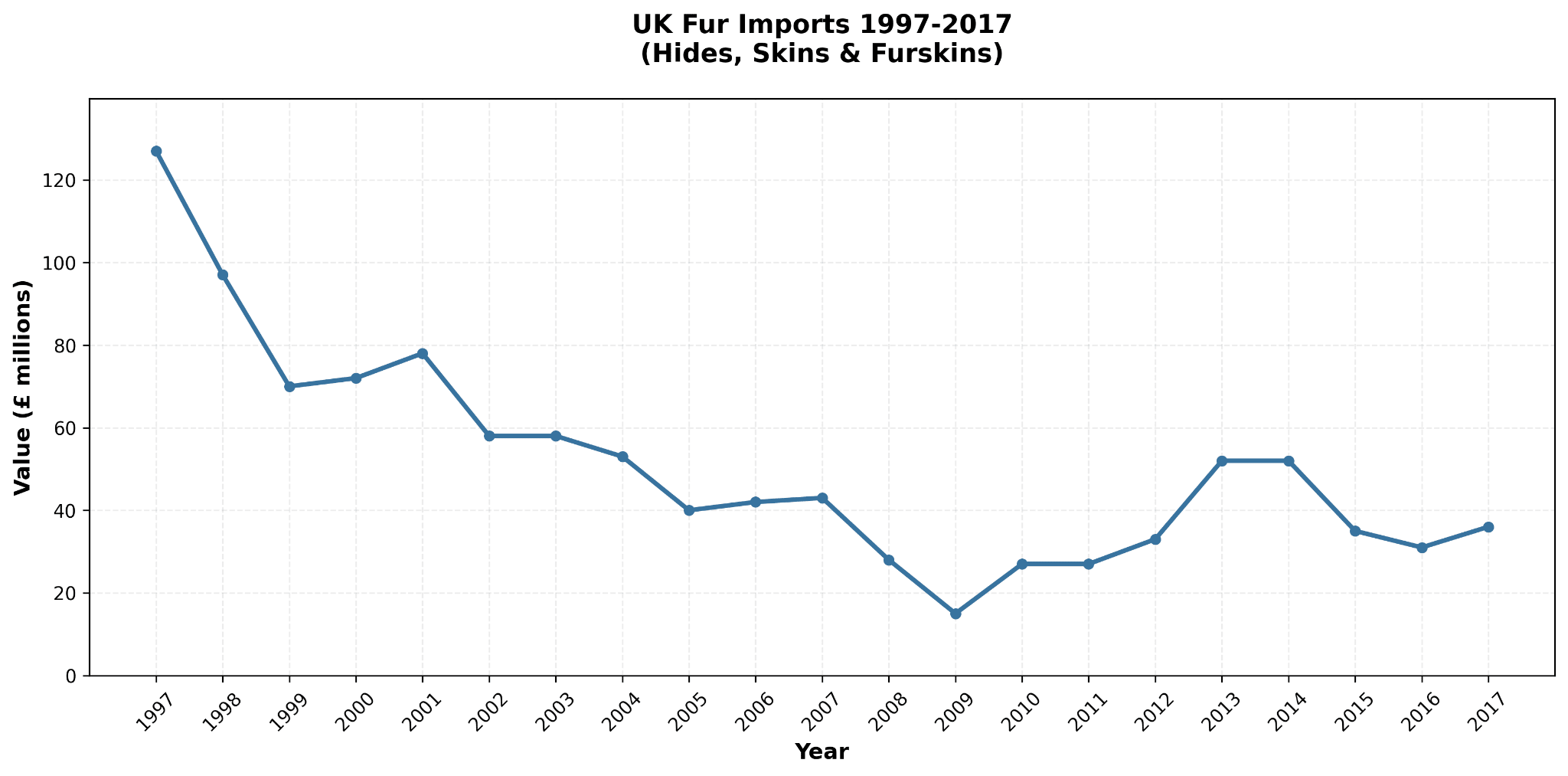Hugh P
Bio
Participation2
How others can help me
Want to leave anonymous feedback for me, positive, constructive or negative? https://www.admonymous.co/hugh
Posts 2
Comments31
Topic contributions5
Some good news since this post was written a few years ago: the usage of cleaner fish in Norway has declined from a peak of 60 million in 2019 to 24 million in 2024.[1] From what I've read this seems to be due to both pressure from the media and Norwegian authorities[2] and also growing use of other methods like laser delousing, which showed positive results in a recent study.[3] (I wasn't able to tell how important each factor was in causing this decline.)
More good news is that the country with the second largest salmon industry, Chile, has not started using cleaner fish:
- The species used in Norway are banned in Chile because they're not native there.[4]
- It was reported in 2018 that species native to Chile were being trialed use on Chilean salmon farms.[5]
- However, a 2023 article says “In both cases, preliminary trials [2015-2019] have been unsuccessful”.[6]
- ^
Rethink Priorities, 21 November 2025: Mapping salmon welfare: sea lice treatments. (Thanks to @Hannah McKay🔸 and @Sagar K Shah for your work.)
- ^
For example "The Norwegian Council for Animal Ethics [an independent advisory body] has stated that continuing the use of cleaner-fish is not justifiable." (from the Norwegian Veterinary Authority Fish Health Report 2024, p. 96.), or public criticism from the Norwegian Food Safety Authority.
- ^
Fishfarmingexpert, 1 September 2025: Significantly fewer treatments needed at farms with lice lasers. The study says "Sites with optical delousing used on average fewer cleaner fish." You can see what the laser system looks like in operation in this video.
In its current form, Arthropoda costs about $175K per year […] We’re about $55K short for 2026
A possibly naive question — does this mean:
- Arthropoda needs $55k to remain at the same level of funding (inflation-adjusted) as 2025?
- Or that Arthropoda needs $55k to fulfil its 2026 plan, which may involve an increase (or decrease) in funding?
- Or is $55k the overall “room for more funding” in some other sense?
The ban on fur farming in the UK [...] didn’t lead to an increase in imports for fur
There's some data from the ONS on this, graph below. Here's the fur data separately (see the "Whole world" row). The ban took effect on 1 Jan 2003. So this seems to be true, although I guess demand for fur was already falling.
Potential opportunity to influence the World Bank away from financing factory farms: The UK Parliament is currently holding an open consultation on the future of UK aid and development assistance, closing on November 14, 2025. It includes the question, "Where is reform needed in multilateral agencies and development banks the UK is a member of, and funds?". This would include the World Bank, which finances factory farms,[1][2] so could this consultation be a way to push it away from doing that, via the UK government?
Are any organisations planning on submitting responses? If so, should there be an effort to co-ordinate more responses on this?
- ^
"Why the World Bank Must Stop Funding Factory Farms", 30 Apr 2024 https://www.worldanimalprotection.us/latest/blogs/why-the-world-bank-must-stop-funding-factory-farms/
- ^
"The World Bank has a factory-farm climate problem", 20 Nov 2024 https://grist.org/food-and-agriculture/world-bank-development-banks-factory-farm-climate-industrial-agriculture/


Hi, was this study published?